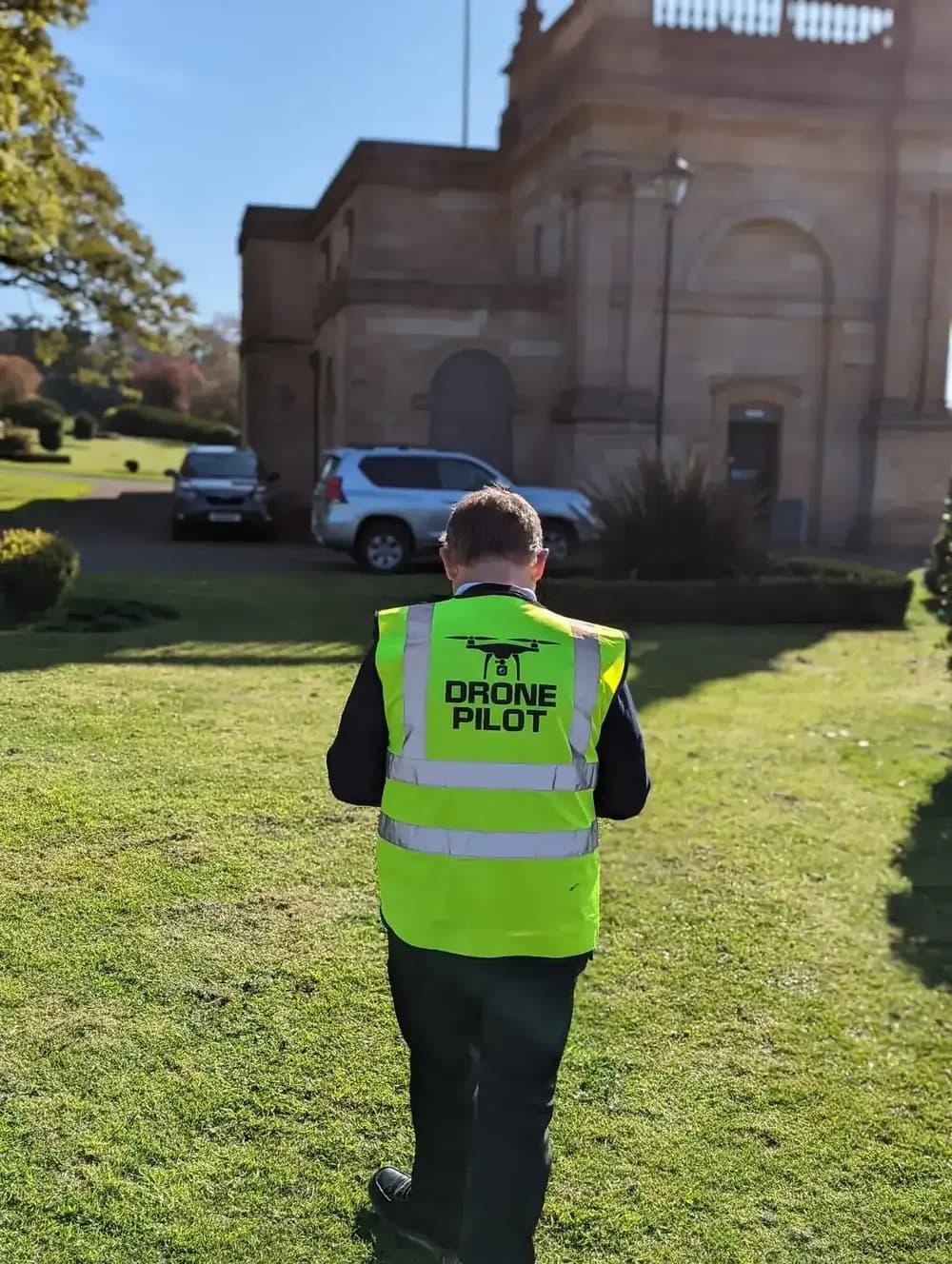
If you're considering becoming a drone pilot in the UK, let me give you some straight advice: don't take half-measures.
While training costs vary, the smartest investment you can make is going straight for the professional certifications that actually open doors. Basic training might start around £100, but the General Visual Line of Sight Certificate (GVC) is the qualification you really need. It's essential for a career in aerial photography, drone surveys, or any other commercial work.
My advice? Get your GVC and the A2 Certificate of Competency (A2 CofC) together and do it right the first time. It’s the single best decision I made when starting out.
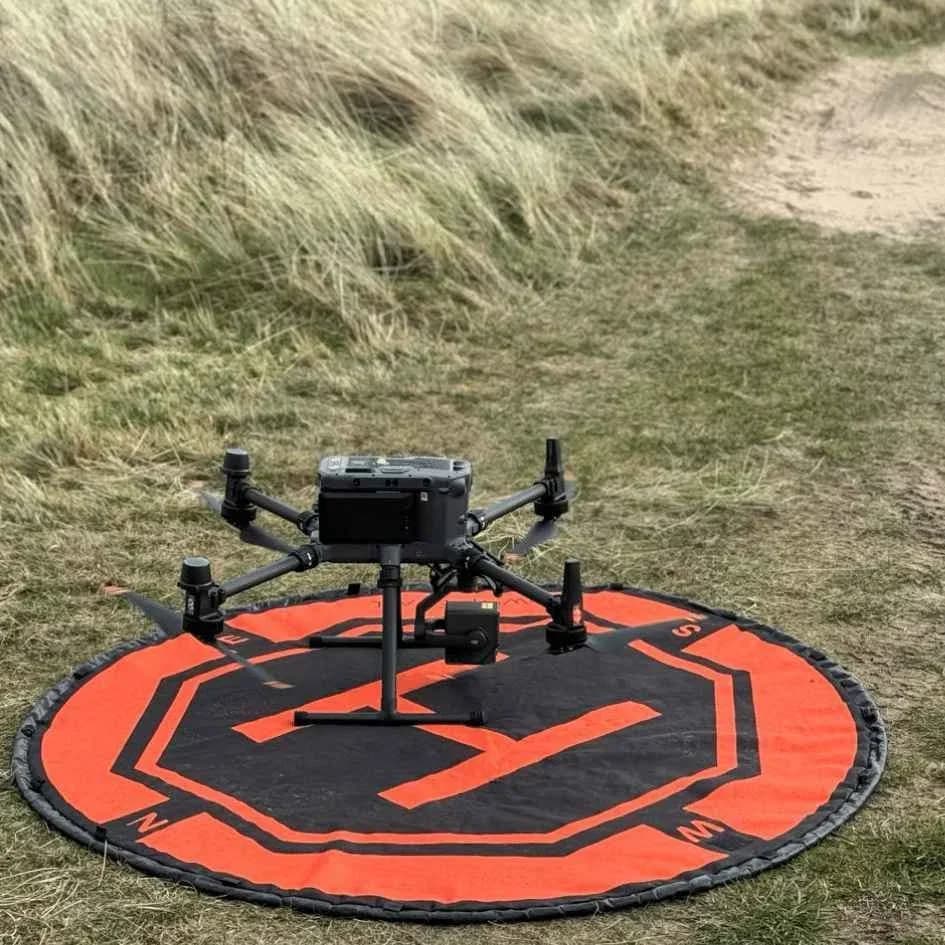
30 Second Summary
- Basic drone pilot training costs between £100-£250 for weekend workshops covering essential skills and regulations
- A2 Certificate of Competency (A2 CofC) training ranges from £100-£250, allowing operation of drones near uninvolved people
- General Visual Line of Sight Certificate (GVC) training costs £600-£1,000 for advanced flight planning and operational safety
- Additional fees include flight assessments (£150-£250), exam retakes (£50-£100), and rescheduling fees (£75-£150)
- Online training options are typically £100-£200 cheaper than in-person courses but still require practical flight assessment
Basic drone pilot training in the UK typically costs between £100 and £250
Basic drone pilot training in the UK offers several affordable entry points, with introductory courses ranging from £100 to £250. These programs cover the bare essentials like safety and basic regulations, often over a weekend.
Frankly, these courses are fine for a hobbyist, but they won't get you anywhere professionally. I've seen too many people start here, only to pay again for a proper course a few months later.
They are a good way to dip your toes in the water, but you'll quickly discover that any serious work requires a much more robust qualification.
An A2 CofC course usually ranges from £100 to £250
Moving up, the A2 Certificate of Competency (A2 CofC) costs between £100 and £250. This certificate lets you fly certain drones closer to uninvolved people.
However, I need to be blunt: getting the A2 CofC by itself is pretty worthless if you have professional ambitions.
It's a common rookie mistake. Drone pilots get their A2 CofC thinking it's a major step, only to realize a few months later that the jobs they want to do all require a GVC. Think of the A2 CofC not as a goal, but as a small, supplementary ticket you pick up while you're getting the main prize: the GVC. Most combined GVC courses include it anyway.
To put it in the simplest terms, the A2 CofC lets you do a little more than a pure hobbyist, but the GVC is what lets you operate as a true professional. The limitations of the A2 CofC become obvious when you see them side-by-side with the permissions a GVC grants.
Let's break down the real-world differences:
A2 CofC vs. GVC: What's the Real Difference?
Feature | A2 Certificate of Competency (A2 CofC) | General Visual Line of Sight Certificate (GVC) |
|---|---|---|
Operating Category | Open Category (A2 Subcategory) | Specific Category (Requires Operational Authorisation) |
Typical Max Drone Weight | Up to 2kg (for C2-rated drones) | Up to 25kg |
Flying Near People | No intentional overflight. Must stay 30m away horizontally. | Can fly closer, subject to a risk assessment in your Ops Manual. |
Flying in Built-Up Areas | Not permitted. | Permitted with CAA authorisation. |
Commercial Viability | Very limited. Unsuitable for most professional jobs. | The professional standard for almost all commercial work in the UK. |
Overall Freedom | Highly restrictive operational limits. | Flexible, enabling complex tasks and professional services. |
As you can see, the difference isn't just a small step—it's a leap. So what does this mean for you in the real world? It's the difference between being a hobbyist with restrictions and a professional with options.
With an A2 CofC, imagine a client asks you to inspect a roof on a terraced house. You'd likely have to say no. The street is a built-up area, and you can't guarantee you'll stay 30m away from neighbouring properties or uninvolved people walking by. Want to film a promotional video for a city-centre hotel? You can't. You are fundamentally locked out of most urban and residential environments where the lucrative work is.
With a GVC and an Operational Authorisation, you can say yes to those jobs. You can conduct a detailed risk assessment, put the necessary safety measures in place (like using spotters or cordoning off an area), and legally fly within that residential street to perform a drone roof inspection. You can get the cinematic shots the hotel client needs. It allows you to fly closer to buildings, over construction sites, and in locations that are simply off-limits to A2 CofC holders. It means you can actually take on the varied, high-value work that clients pay for.
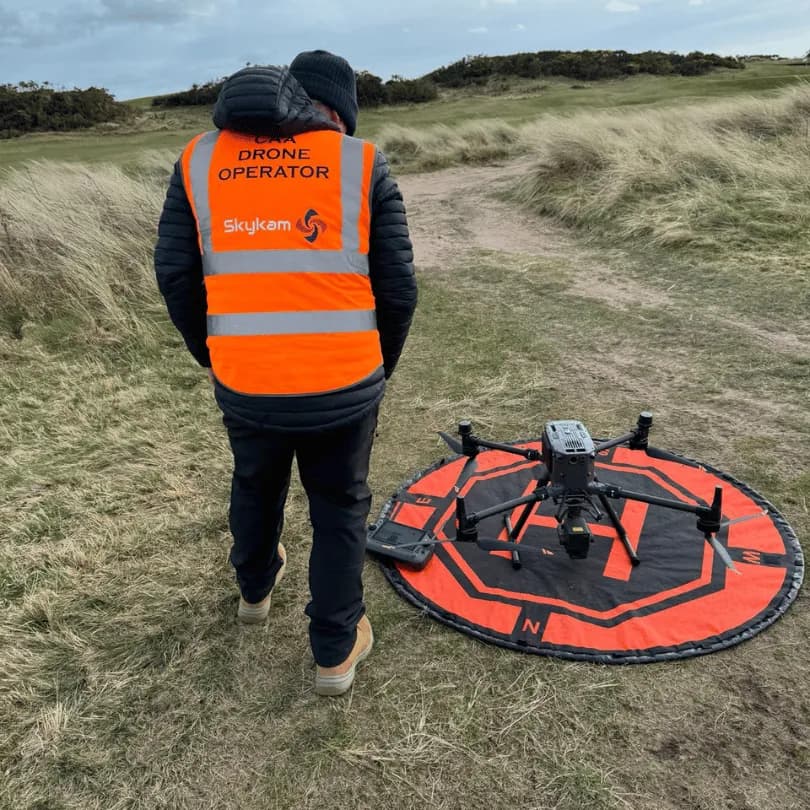
A2 CofC Drone Training Provider Comparison
Provider | Price (incl. VAT) | Course Duration & Format | Key Features / Notes |
|---|---|---|---|
UAVHUB | £499 | Online & Self-Paced: ~9-10 hours of video content, followed by a 2-hour in-person flight test. | Known for its affordability and fully on-demand online system. Includes Operations Manual builder and free theory exam retakes. |
COPTRZ | £718.80 | Online & Self-Paced: Estimated 40 hours of online learning, plus an in-person flight test. | Offers lifetime access to course materials. Resit fees apply for both theory and practical exams if needed. |
Heliguy | £699 | Online & Self-Paced: On-demand online learning, a remote theory exam via webcam, and an in-person flight test. | Includes an Operations Manual creation service and support from in-house instructors during business hours. |
Flyby Technology | £1,198.80 (£99 + VAT) | Live Virtual Classroom: Typically 2 full days of instructor-led training via Zoom, plus an in-person Flight Skills Test. | Focuses on premium, pilot-centric training with instructors from manned aviation backgrounds. The format is more structured than self-paced options. |
When comparing GVC courses, don't just focus on price. Consider the provider's reputation, instructor experience, and post-qualification support.
Pay close attention to features like an 'Operations Manual builder' offered by some providers. This document is mandatory for your CAA application, and getting a good template can save you days of complex work.
Important Note: None of these course fees include the £500 application fee for an Operational Authorisation, which must be paid directly to the Civil Aviation Authority (CAA) after you successfully pass your GVC course. That one can be a bit of a sting after paying for the course, so be sure to budget for it.
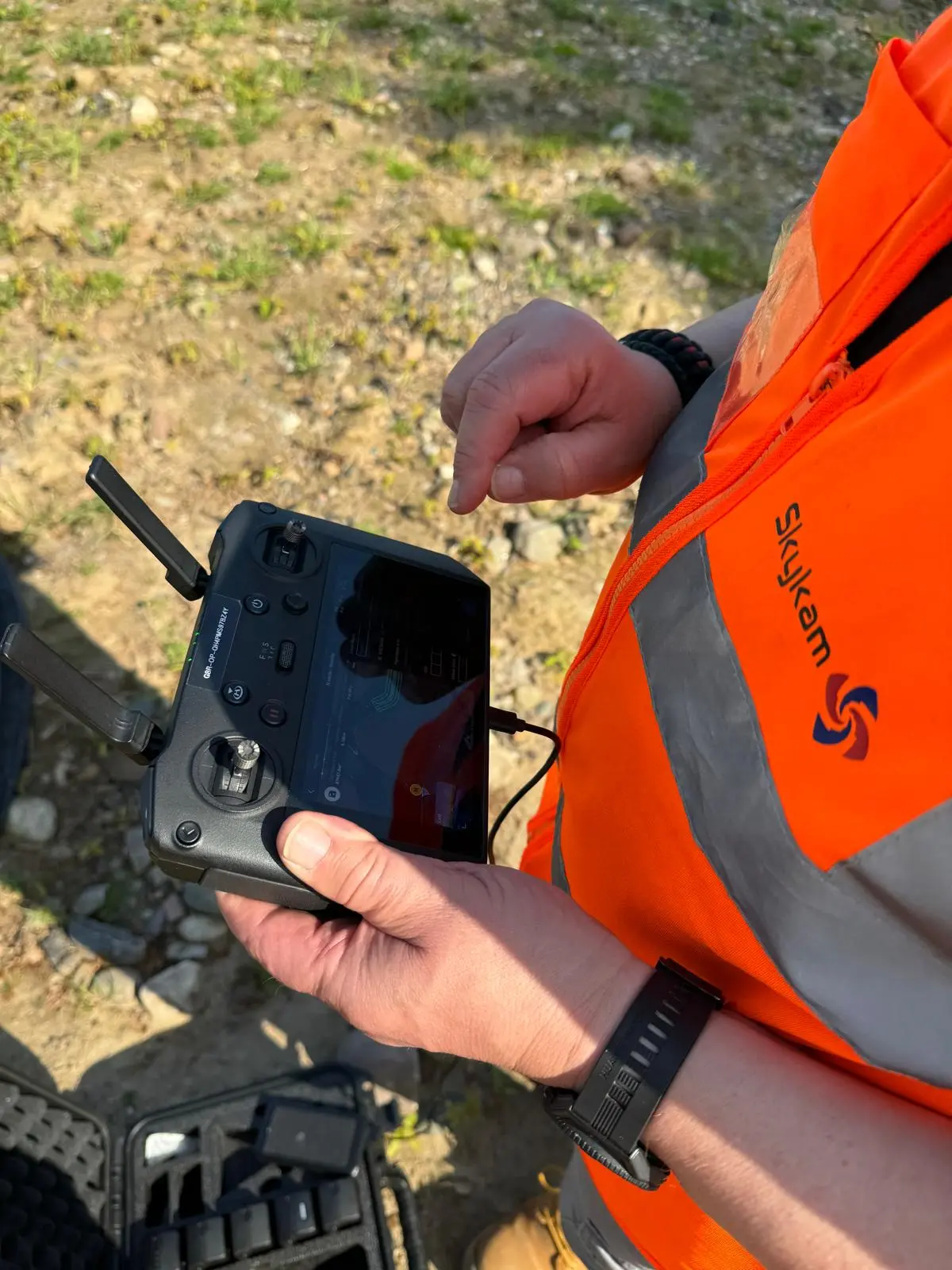
Your #1 Priority Before Booking: Get 25 Hours Of Drone Flight Time
Before you spend a single pound on a course, you need to buy flight time with your own effort. The theory can be learned, but the muscle memory for flying manually cannot be crammed.
I cannot stress this enough: aim for a minimum of 25 hours of real-world flight time. Get comfortable with your drone. Practice flying without GPS assistance. Fly manual circuits like figure-eights and squares over and over.
This preparation is what separates a pass from a fail in the practical test.
The Hardest Part: The Flight Test
When you look at course packages, be aware that the practical flight assessment (£150-£250) is often an extra cost. And let me tell you, the theory is the easy part. The flight test is where you truly earn your wings.
From my own experience, the hardest part is the manual flight test. You'll have to fly precise circuits without any GPS assistance. The real challenge came when I had to fly the drone out to a distance where I couldn't tell its orientation visually, then bring it all the way back relying purely on muscle memory and the controls. It's intense.
The feeling of the examiner watching your every move is nerve-wracking; you want the drone's controls to be pure instinct at that point. This is why that pre-course practice is non-negotiable if you want to pass.
Online vs. In-Person Training
Virtual drone training programs are a great, cost-effective option, often £100-£200 cheaper than in-person courses. As someone who took the online route, I can confirm it works perfectly well if you have the self-discipline to study the material. My tip is to block out time in your calendar as if it were a real class.
You still have to complete the practical flight assessment in person, but mastering the theory from home offers huge flexibility. Just make sure your chosen provider is CAA-approved.
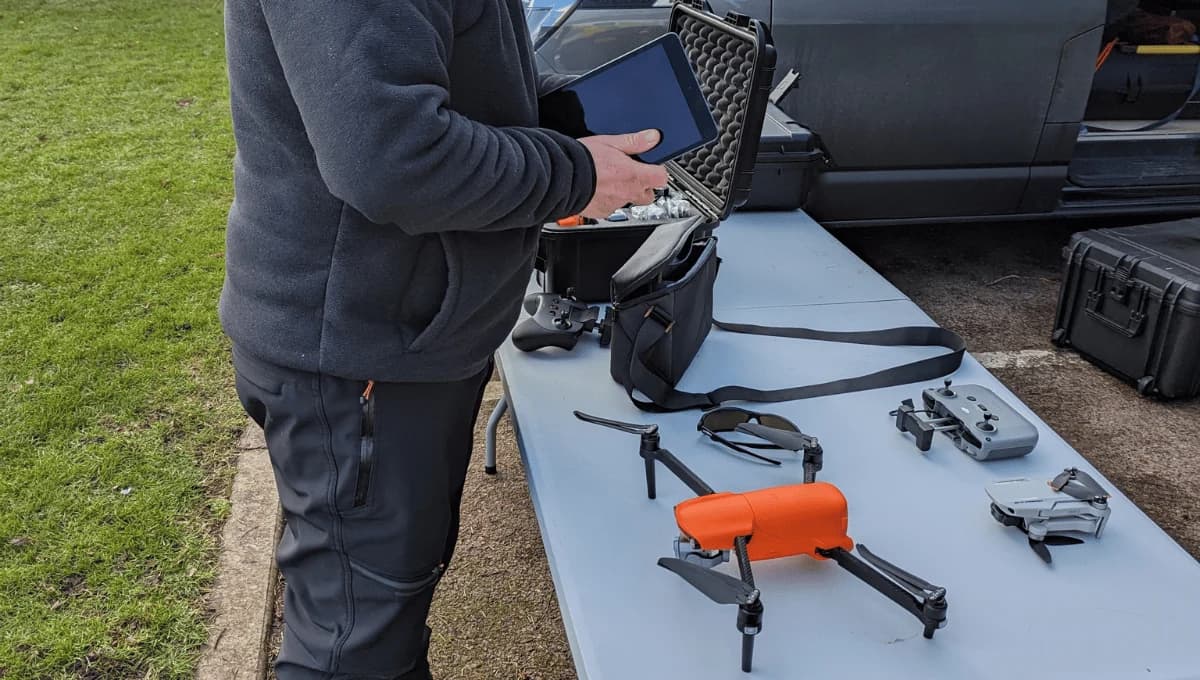
How to Choose the Right Drone Training Provider
CAA Approval: This is non-negotiable. First, ensure the provider is a CAA-approved Recognised Assessment Entity (RAE). It's the very first thing I check before even looking at prices.
Instructor Experience: Look for instructors with real-world aviation experience. Their insights are gold. My best instructors were former military and commercial pilots; their stories stick with you.
Course Format: Decide if you're a self-paced learner or need a live virtual classroom. I did well with a self-paced course, but it's down to personal preference.
Operations Manual Support (for GVC): This document is a beast. Check how much support the provider offers. A good template can save you dozens of hours of headaches. Trust me on this one, you do not want to write this from scratch without guidance.
Reviews and Reputation: Check Trustpilot, but also look at drone pilot forums for honest, unfiltered opinions. That's where you'll find the real scoop.
Frequently Asked Questions
How Long Does Drone Pilot Training Typically Take to Complete?
Basic courses are a few days, but for the GVC, plan for at least a week of combined study and practical training. But remember, the real timeline includes the 25+ hours of flight practice you should do beforehand. Don't rush it.
Are There Any Prerequisites for Enrolling in Drone Training Courses?
You need to be over 18, but the main prerequisite isn't on paper. It's having the dedication to practice flying until the controls are second nature and to learn the regulations thoroughly. Passion is the real prerequisite.
Do Training Costs Include Drone Rental for Practical Sessions?
Most do, but I strongly recommend using your own drone for the practical assessment. Always use your own drone if you can. The examiner is testing your skill as a drone pilot, and the last thing you need is to be fighting unfamiliar controls on the day. It made a huge difference for me.
Can I Use My Drone Training Certification Internationally?
No, not automatically. Your UK qualifications aren't a global passport. This can be a bureaucratic headache I've dealt with myself, so do your homework long before you travel with drones. You must check the specific rules for each country, as many require their own local certification.
What Ongoing Costs Exist After Obtaining a Drone Pilot License?
You'll have license renewals, mandatory insurance (which can be £500-£1,000 annually for commercial work), drone registration, and equipment maintenance. Commercial insurance is the big one that people often forget to budget for properly. It's a professional tool, with professional running costs.
Ready to Turn Your GVC into a Career?
Choosing the right training and earning your GVC is the crucial first step to becoming a professional drone pilot, but getting qualified is only half the battle. The next challenge is connecting with clients who need your specialist skills.
This is where HireDronePilot solves the problem. As the UK's premier managed marketplace, we focus on connecting businesses with verified professional drone pilots for hire—pilots who, like you, have the right certifications and are ready for commercial projects. Our network is built on expertise, and we streamline drone services through competitive bidding, ensuring quality, compliance, and value for every aerial project across the United Kingdom.
Once you have your GVC and are ready to take on professional work, join our network to connect with high-value clients searching for your skills.
About the Author

Written by
Peter Leslie
Peter Leslie is a CAA-approved commercial drone pilot with 10+ years experience and over 10,000 flight hours. He holds the GVC and A2 CofC drone licences with full CAA Operational Authorisation. Peter is a member of ARPAS-UK, the UK's non-profit trade association for the drone industry. He founded HireDronePilot to connect UK businesses with qualified, insured drone operators.
Looking for More Drone Work?
Join the UK's leading network of professional drone pilots and grow your business.
Open Access
Bid on any job - all jobs open to all pilots
Grow Revenue
Access high-value commercial projects
Stay Busy
Fill your schedule with regular work
Related Articles
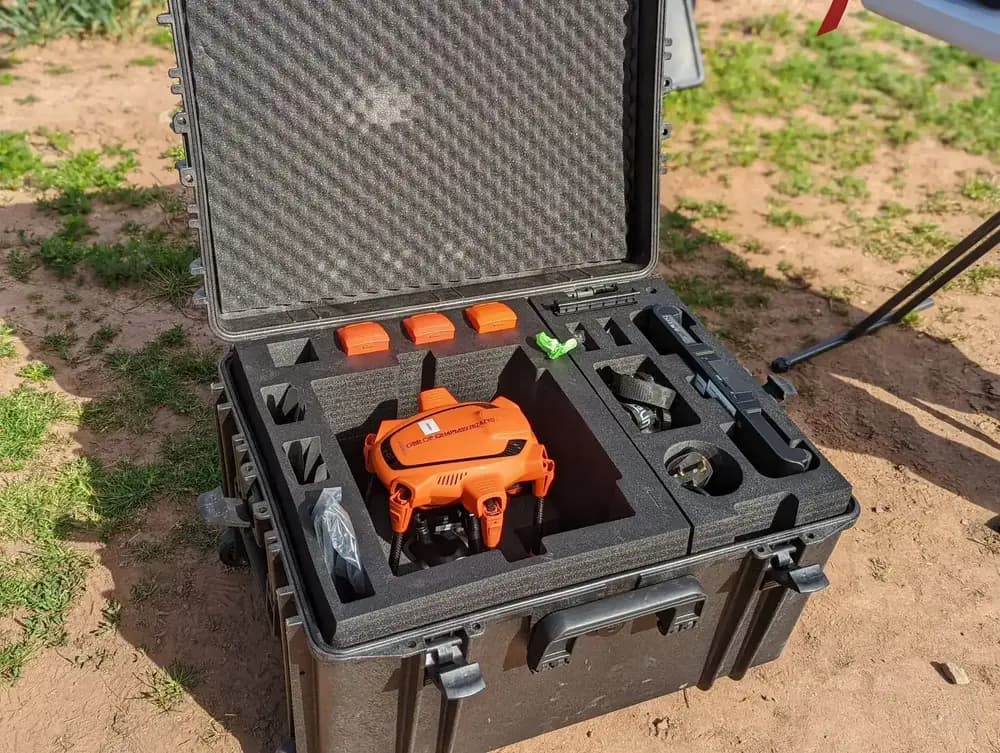
Our Drone Survey Service In Stirling, Scotland
Bringing you Stirling drone survey data from areas no one else can fly.

How Much Does A Drone LiDAR Survey Cost
Forecasting your drone LiDAR survey cost requires understanding what's hidden beyond the initial quote.
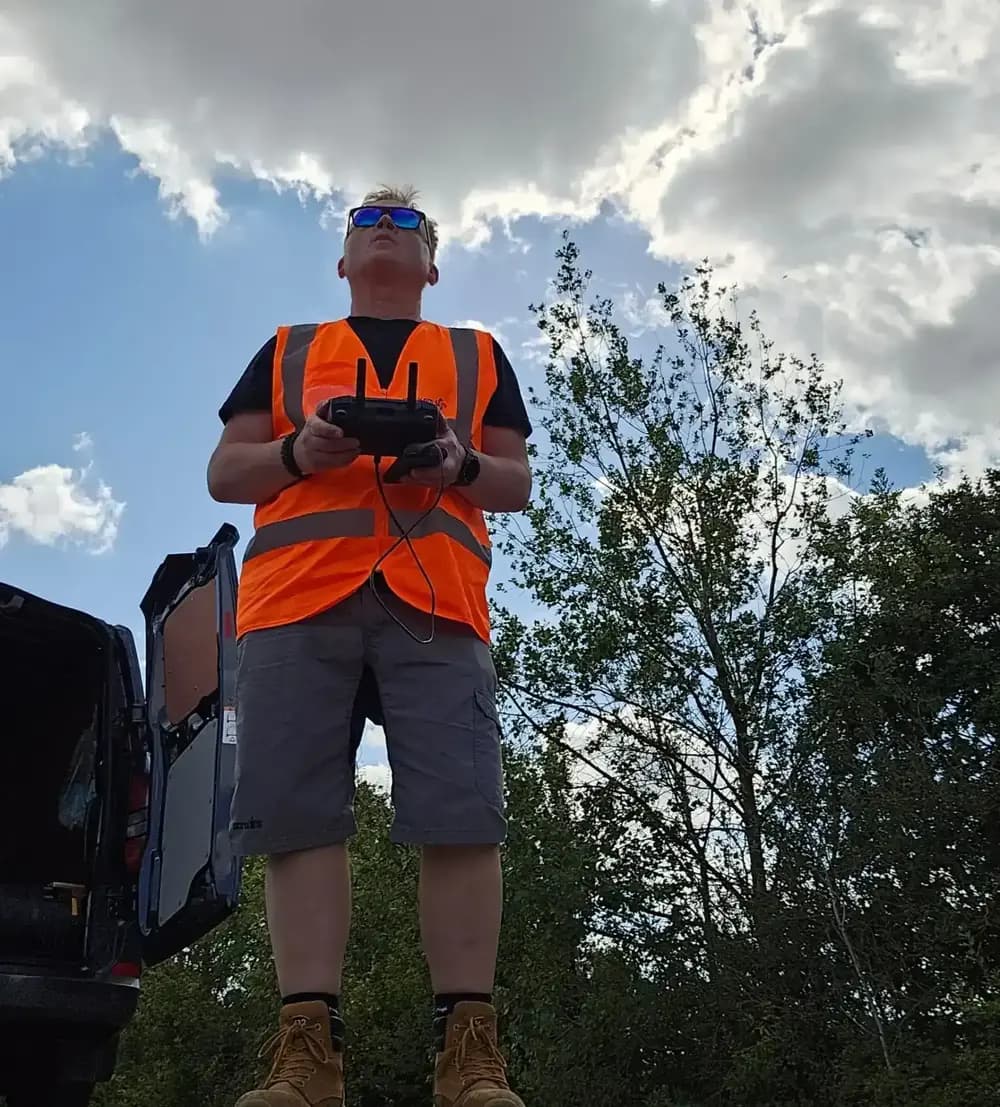
Step By Step Process Of Drone LiDAR Survey
Next, discover the crucial post-flight steps that determine your survey's success.
